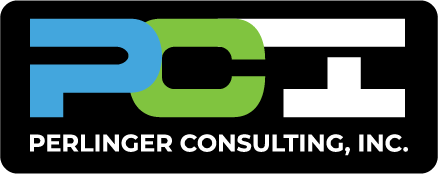MID-YEAR TAX PLANNING CHECKLIST
MID-YEAR TAX PLANNING CHECKLIST Updated: Jun 26, 2023
Introduction
Mid-year is a pivotal time for individuals and businesses to review their tax situation. Effective tax planning can help avoid surprises and capitalize on potential savings. This detailed checklist outlines various factors that can impact your taxes, with a focus on strategic planning.
Comprehensive Tax Planning Areas
Personal Life Events
- Marital Status Changes: Understand how marriage, divorce, or widowhood affects your filing status and tax bracket.
- Family Growth: Explore tax credits like Child Tax Credit or Adoption Credit.
Employment and Business Changes
- Job Changes: Review implications of salary changes, bonuses, or unemployment.
- Self-Employment: Assess quarterly tax payments and potential deductions.
- Starting or Selling a Business: Explore tax implications and reporting requirements.
Investment Decisions
- Stocks and Bonds: Consider capital gains tax or losses on sales.
- Real Estate Transactions: Understand exclusions and tax on capital gains from the sale of a primary residence or rental properties.
Deductions and Credits
- Charitable Donations: Maximize deductions by itemizing charitable contributions.
- Education Expenses: Utilize deductions and credits for tuition and other education-related expenses.
Retirement Planning
- Contributions to Retirement Accounts: Assess the impact of contributions to IRAs or 401(k)s.
- Retirement Distributions: Plan for taxes on distributions from retirement accounts.
Estate and Gift Planning
- Estate Tax Planning: Understand the implications of estate tax on your heirs.
- Gift Tax: Be aware of annual gift tax exclusion limits.
Health-Related Expenses
- Medical Expenses: Deduct unreimbursed medical expenses exceeding a certain percentage of AGI.
- Health Savings Accounts (HSAs): Contributions to HSAs can provide tax benefits.
Tax-Loss Harvesting
- Offsetting Capital Gains: Use investment losses to offset taxable capital gains.
Miscellaneous Considerations
- Disaster Losses: Tax treatment for losses due to federally declared disasters.
- Foreign Income and Assets: Reporting and tax obligations for foreign income and assets.
Advanced Tax Planning Strategies
- Income Shifting: Consider strategies to shift income to lower tax years or to family members in lower tax brackets.
- Roth IRA Conversions: Analyze the benefits of converting a traditional IRA to a Roth IRA.
- Education Savings Plans: Explore tax-advantaged savings plans like 529 plans.
Changes in Tax Laws
- Keeping Updated: Stay informed about the latest tax law changes and how they might affect your situation. Consulting tax news sources and IRS announcements is crucial for up-to-date information.
Utilizing Technology for Tax Planning
- Tax Software: Leverage advanced tax software for more accurate and efficient tax planning.
- Digital Record Keeping: Maintain digital records for easy access and organization.
Working with Tax Professionals
- Hiring an Advisor: Engage with tax professionals for personalized advice and planning.
- Tax Planning Services: Consider specialized tax planning services for complex situations.
Proactive Steps for Effective Tax Management
- Regular Reviews: Conduct regular tax reviews to identify potential savings or liabilities.
- Tax Forecasting: Use forecasting tools to estimate future tax liabilities and plan accordingly.
Additional Insights for Mid-Year Tax Planning
Understanding Tax Brackets
- Tax Bracket Adjustments: Recognize how life changes or income shifts can move you into different tax brackets. Understanding your current tax bracket is crucial for effective planning and can influence decisions like when to realize additional income or make deductible expenditures.
- Marginal Tax Rate: Be aware of your marginal tax rate, as this will affect the tax benefit of certain deductions or the cost of additional income.
Maximizing Retirement Contributions
- 401(k) and IRA Contributions: Maximize contributions to retirement accounts like 401(k)s and IRAs. Contributions to these accounts can lower your taxable income.
- Catch-Up Contributions: If you are over age 50, take advantage of catch-up contributions to add more to your retirement savings.
Health Care Considerations
- Flexible Spending Accounts (FSAs): Utilize FSAs for healthcare expenses. Money contributed to these accounts is not subject to payroll taxes, resulting in significant tax savings.
- Health Insurance Premiums: If self-employed, remember that health insurance premiums paid can be deductible.
Tax Credits vs. Deductions
- Understanding the Difference: Recognize the difference between tax credits and deductions. A tax credit reduces your tax bill dollar-for-dollar, while a deduction reduces the amount of income that is subject to tax.
- Eligibility for Credits: Investigate eligibility for various tax credits like the Earned Income Tax Credit, Child and Dependent Care Credit, and Education Credits.
Alternative Minimum Tax (AMT)
- AMT Considerations: Be aware of the Alternative Minimum Tax, which ensures that those who receive certain types of income pay at least a minimum amount of tax.
Charitable Giving Strategies
- Donor-Advised Funds: Consider using a donor-advised fund for charitable contributions. These funds allow you to make a charitable contribution, receive an immediate tax deduction, and then recommend grants from the fund over time.
- Bunching Donations: Bunch charitable donations in a single year to surpass the standard deduction and maximize itemized deductions.
State and Local Taxes
- SALT Deduction Cap: Be mindful of the state and local tax (SALT) deduction cap. Understanding how much of your state and local taxes you can deduct on your federal return is important for accurate tax planning.
Tax Efficient Investment Strategies
- Asset Location: Consider the tax-efficiency of asset location. Certain investments may be more tax-efficient in taxable accounts versus retirement accounts.
- Capital Gains Planning: Plan for the tax impact of selling investments that have appreciated in value.
Real Estate and Property Taxes
- Home Mortgage Interest: Understand the implications of mortgage interest deductions, particularly if you own a home or are planning to buy one.
- Property Tax Planning: Include property taxes in your planning, especially if you own real estate or are considering purchasing.
Business Owner Considerations
- Business Deductions: Explore all potential business deductions, including home office deductions, vehicle expenses, and equipment purchases.
- Quarterly Tax Payments: If self-employed or a business owner, ensure you’re making adequate quarterly tax payments to avoid penalties.
Education Funding
- Tax-Advantaged Savings Plans: Utilize 529 plans or Coverdell Education Savings Accounts for tax-advantaged education savings.
- Student Loan Interest Deduction: If you have student loans, consider the potential deduction for student loan interest.
Estate Planning
- Estate Tax Laws: Stay informed about estate tax laws and how they may impact your estate planning.
- Gift Tax Strategies: Understand the implications of the gift tax and consider strategies for tax-efficient gifting.
Keeping Up with Tax Law Changes
- Staying Informed: Tax laws can change frequently. Stay informed about current tax laws and potential legislation that could affect your taxes.
Professional Assistance
- Tax Advisor Expertise: A professional tax advisor can provide personalized advice tailored to your unique financial situation.
Effective mid-year tax planning is essential for managing tax liabilities and maximizing potential savings. By considering these comprehensive factors and seeking professional advice, you can make informed decisions and strategically plan for the current and coming tax years.
For further information, visit reputable sources like the IRS website, Tax Foundation, and tax advisory services for up-to-date tax planning strategies and regulations.

This blog is meant for educational purposes only. Articles contain general information about accounting and tax matters and is not tax advise and should not be treated as such. Do not rely on information from this website as an alternative to seeking assistance from a certified tax professional. Perlinger Consulting partners with certified tax professionals to assist our clients.
